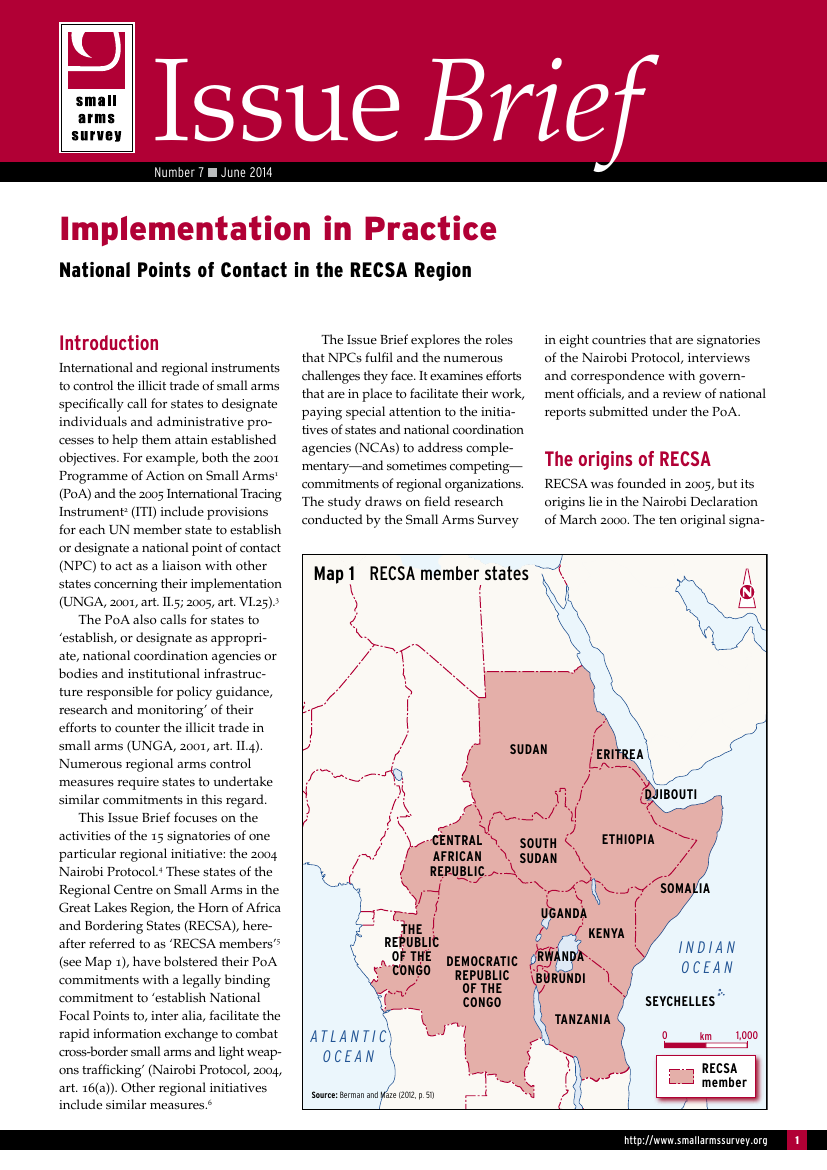
Implementation in Practice: National Points of Contact in the RECSA Region (Issue Brief 7)
International and regional instruments to control the illicit trade of small arms specifically call for states to designate individuals and administrative processes to help them attain established objectives. For example, both the 2001 Programme of Action on Small Arms (PoA) and the 2005 International Tracing Instrument (ITI) include provisions for each UN member state to establish or designate a national point of contact (NPC) to act as a liaison with other states concerning their implementation (UNGA, 2001, art. II.5; 2005, art. VI.25).
The PoA also calls for states to ‘establish, or designate as appropriate, national coordination agencies or bodies and institutional infrastructure responsible for policy guidance, research and monitoring’ of their efforts to counter the illicit trade in small arms (UNGA, 2001, art. II.4). Numerous regional arms control measures require states to undertake similar commitments in this regard.
Implementation in Practice: National Points of Contact in the RECSA Region focuses on the activities of the 15 signatories of one particular regional initiative: the 2004 Nairobi Protocol. These states of the Regional Centre on Small Arms in the Great Lakes Region, the Horn of Africa and Bordering States (RECSA), hereafter referred to as ‘RECSA members’ (see Map 1), have bolstered their PoA commitments with a legally binding commitment to ‘establish National Focal Points to, inter alia, facilitate the rapid information exchange to combat cross-border small arms and light weapons trafficking’ (Nairobi Protocol, 2004, art. 16(a)). Other regional initiatives include similar measures.
The Issue Brief explores the roles that NPCs fulfil and the numerous challenges they face. It examines efforts that are in place to facilitate their work, paying special attention to the initiatives of states and national coordination agencies (NCAs) to address complementary—and sometimes competing— commitments of regional organizations. The study draws on field research conducted by the Small Arms Survey in eight countries that are signatories of the Nairobi Protocol, interviews and correspondence with government officials, and a review of national reports submitted under the PoA.
Have your say about Small Arms Survey publications and products: take 5 minutes to fill out our questionnaire.